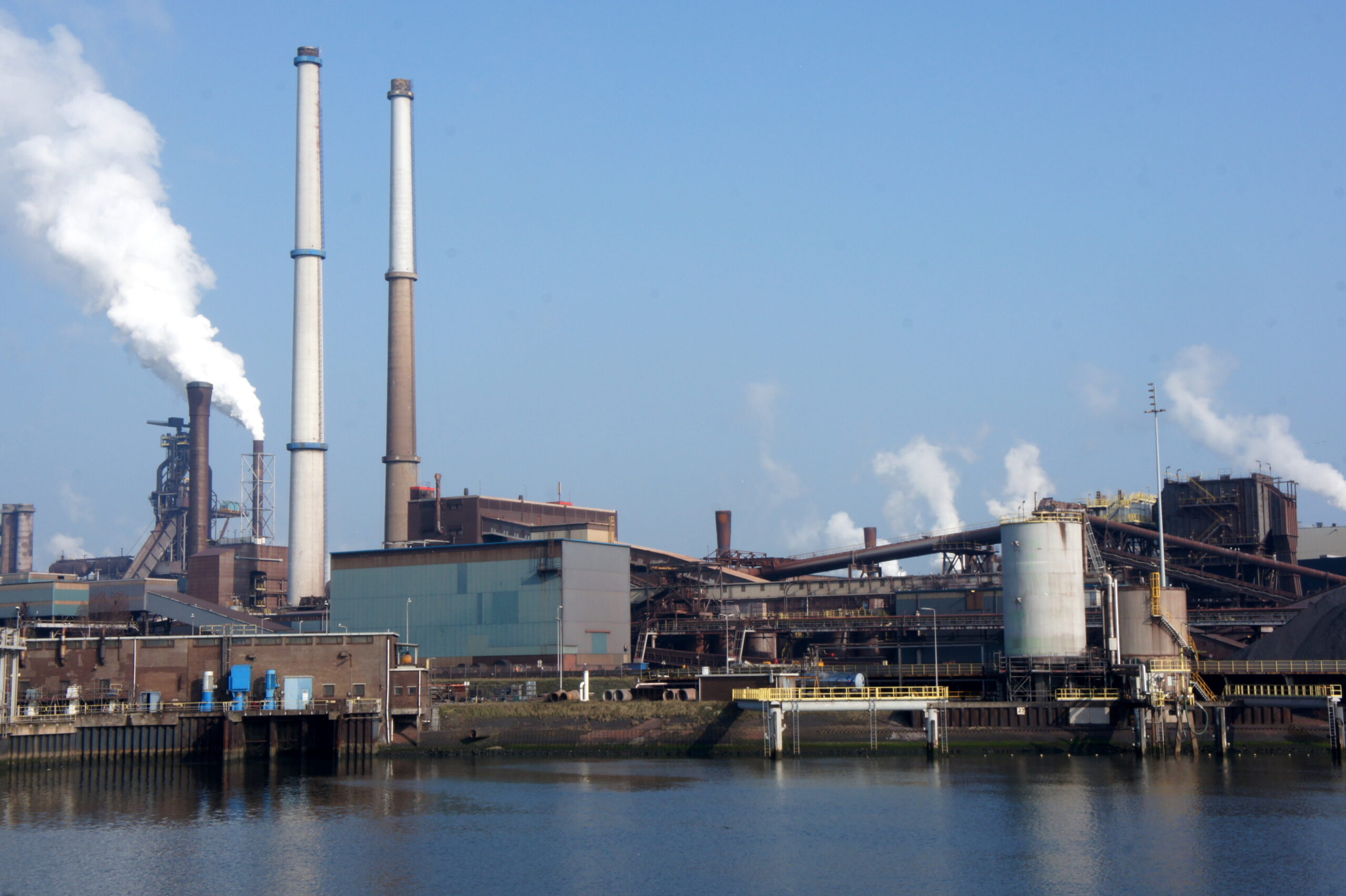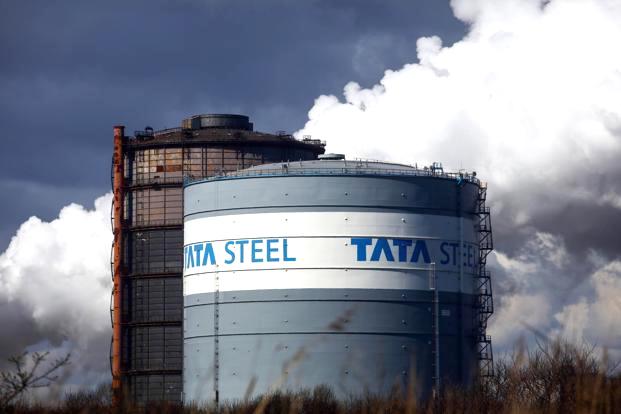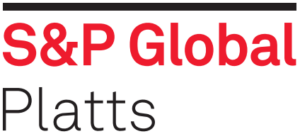
Tata Steel relights BF in IJmuiden
Tata Steel’s BF6 was idled late in March 2023 for maintenance work. The restart, however, was postponed several times because of “technical issues.”
“[The relining of BF6] is a large project and has a number of third-party dependencies in terms of services and equipment,” a Tata Steel spokesperson said on October 23. “As a result of certain delays and delivery issues from third parties, we have had to make changes to the schedule of the project.”
The furnace has now been finally reignited, however.
“A few days ago,” the spokesperson said on January 31, “we began the start-up process on BF6. Step by step, we are working toward a full ramp-up in the production of hot pig iron.”
Several sources familiar with the matter said that the BF in IJmuiden was restarted on January 29.
The IJmuiden steelworks can produce 6 million tonnes per year of pig iron from two BFs. BF6 has capacity for 2.5 million tpy of that total volume.
Tata Steel IJmuiden has capacity for 7.5 million tpy of crude steel, according to Fastmarkets’ company information. The site produces hot-rolled, cold-rolled, hot-dipped galvanized and pre-painted coils as well as tin-plated products.
Market concerns
Market sources were worried that, if more steelmaking capacities were brought back online in the first quarter of 2024, this might hamper the fragile uptrend in the EU flat steel market.
Prices for flat steel in Europe have been picking up in January, primarily driven by reduced supply resulting from output cuts and some limited restocking activity, although end-user demand remained low.
“The acute price rise [in HRC] is entirely supply-driven,” a source in Northern Europe said.
Fastmarkets calculated its daily steel hot-rolled coil index, domestic, exw Northern Europe, at €760.63 ($824.13) per tonne on January 31, up by €3.75 per tonne from €756.88 per tonne on January 30.
The index was also up by €13.96 per tonne week on week and by €65.13 per tonne month on month.
Earlier this month, Salzgitter restarted its BF “A” at Flachstahl in Germany after a four-month outage.

Published by: Julia Bolotova


UK government disadvantages Tata Steel
The UK government is putting Tata Steel at a disadvantage compared with its European peers with the comparatively low level of funding it is providing to help the company decarbonise.
The government has committed to provide Tata with £500mn ($635mn) towards the cost of decarbonising its Port Talbot plant in South Wales, which will have an electric arc furnace with a capacity of about 3mn t. This equates to £166/t worth of assistance.
That level of funding would be insufficient to enable other technologies such as two electric arc furnaces or direct reduced iron. Tata itself is investing £700mn in the move, which has widely been criticised by unions and the Labour opposition as a “bad deal”.
In comparison, the German government is giving Salzgitter more than €525/t ($568.80/t) to facilitate its movement to hydrogen-fed green steel. Germany’s ThyssenKrupp will receive almost €870/t to help it transition to green steel at its flagship Duisburg site.
ArcelorMittal is receiving more than €600/t to help decarbonise its Sestao plant in Spain. At its Dunkerque site in France, it has received funding of €850mn to produce 4mn t of lower-carbon steel, equating to €212/t worth of financial assistance. Therefore, most European competitors are receiving greater state assistance.
To feed its electric arc furnace, Tata will still need to import direct reduced iron, pig iron or other metallics to complement the reservoir of domestic scrap. Sources suggest this could be as much as 1mn t/yr.
Should UK electricity prices remain high compared with Europe, there is a risk Tata’s electric arc furnace will still struggle to compete, although the reduction in fixed costs from job cuts and the ability to adjust output quickly will be financially beneficial.
“This steel plant was losing more than £1mn a day, putting it at risk of closure and threatening 8,000 jobs in South Wales and thousands more in the wider supply chain,” a government spokesperson said.
“The government’s unprecedented £500mn grant as part of the £1.25bn investment by Tata Steel will build a new electric arc furnace that protects thousands of long-term jobs, as well as delivering a much greener way of producing steel, cutting carbon emissions in Wales by 22pc.”


ISTA to meet UK govt on Tata Steel import concerns
ISTA had called for an immediate solution to make it possible for UK buyers to import Indian material. Sources close to the matter told S&P Global Commodity Insights Aug. 3 that the UK government agreed to meet the trade body in September to discuss the matter.
In the July 27 letter seen by S&P Global that was sent to members late-Aug. 3, ISTA claims that the repeated steel orders by Tata Steel UK could be seen as “an unfairly attempt to manipulate the free market.”
“Like all UK steel producers, Tata benefits from the protection of the Safeguard Measures quota system, but it cannot be considered as fair trading practice to then take up that quota thus preventing importers from supplying their own customers,” the letter said.
“Steel already booked and currently on the water to the UK, destined for independent service centres and manufacturing, will not be able to be customs cleared and utilised – a fact Tata Steel know only too well,” ISTA said in the letter, warning that the lack of import opportunities would have a “devastating and immediate effect on steel manufacturing.”
ISTA suggested several options to resolve the matter: to either create a new import category code for Tata Steel’s own domestic use or changing the quota to be utilized for its intended imports and end-user customers. Another possibility would be to increase the quota volume for the other country category, under which Indian material falls.
Tata Steel to receive new order in Sep
Tata Steel has a 22,000 mt order of Indian HRC arriving in September for clearance under the quota period starting Oct. 1. The quota is expected to exceed immediately, sources said. The company is also said to have received a previous order of Indian material in June to support production of its Port Talbot works while it faced production problems.
Although it is understood that Tata has not received material in the current quota period July 1 to Sept. 30, the quota nevertheless is likely to be exhausted soon. There are 1,105 mt left under the other country quota as of Aug. 3, which means it is considered “critical” where a 25% duty deposit has to be paid. The opening balance was 22,837 mt.
Tata Steel UK declined to make an immediate comment on the matter when contacted Aug. 3 after usual office hours.
In an earlier statement July 27 to S&P Global, a spokesperson had said: “Tata Steel, like most other steelmakers, sometimes complements its own production with supplies from other sources to balance its utilisation of downstream businesses.”
The Platts weekly assessment for UK HRC was at GBP615/mt DDP West Midlands Aug 3, stable week on week, according to data from S&P Global.
Author Laura Varriale


